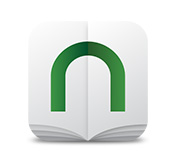It occurred to me recently that I haven’t offered many details about the moment in my life when I chose salvation. I’ve written and self-published Cows In The Pews and the Atheists Too and I’ve published several posts on my website cowsinthepews.com writing thousands of words. My sole intent has been and will continue to be, to proclaim, testify, and confess my faith in the written word of God as contained in the Authorized King James version of the Bible available to the whole world for all to know God. And yet, I haven’t said much about why. Why do I do what I do? What was the genesis of that moment in my life when I chose salvation, leading to my heartfelt desire to dare to stand apart from the camp, as it were, and accuse not only the mainstream denominations, but also their followers of misunderstanding and mishandling the word of God?
Allow me to explain. To a great extent, it all started during my childhood when I was introduced to Christianity in the form of church service in observance of Christmas. Obviously, I was young, naive, ignorant, and understood next to nothing about God, Jesus, the bible, why we went to church, why we put money in the basket, why we sang songs, why we prayed, etc. Why? Throughout my formative years, I assume I approached the whole church attendance thing like most children did/do, that is, questioning why we’re doing any of it because I didn’t want to. You know…
“George… Wake up. It’s time to go to church.”
“Come on ma, do I have to? I don’t want to… I wanna go outside and play with my friends”
“Yes George, you have to… Now take a shower and put your church clothes on…”
I was young, selfish, immature and clearly wasn’t asking my parents to explain God, His bible, and why they were believers (I eventually learned they weren’t, but they were still compelled to expose me and my brother and sister to Christianity none the less).
Our family’s church attendance was spotty at best, and for the most part, it seemed to coincide with observing Christmas and Easter. I eventually learned that there were different denominations and when I asked my parents what we were; they said we were protestants, whatever that meant… As I mention in my Bio, we were a Navy family and for the first twelve years of my life, we moved every three years, which put us in NAS Pax River, Maryland in 1969. The outlying town was Lexington Park, Maryland where we lived in a trailer for about a year while Officer’s quarters were being built on the air station.
During that period, the student body in the public schools in the district was predominantly black and my sister was picked on incessantly as one of the few white children attending the elementary school. For reasons that are still unclear to me, but I assume were related to the racial climate in the country at the time, my parents decided to send my brother and me to Catholic school. They eventually transferred my sister from public school to Catholic school as well. This marked the next chapter, if you will, in my introduction and exposure to denominational worship, which I eventually understood to be the largest Christian denomination in the world. It also coincided with my introduction to water baptism and it as a requirement for salvation.
This was a key point in my life when I think I started to consider faith in God, or not, more seriously. I was ten going on eleven and less childish I guess in my wanting to understand what it was all about. Contributing to my increased interest was the fact that as protestant children in a Catholic school, my brother and sister, and I were not required to attend the worship/prayer services that the catholic children were required to attend every day. It’s not that we were excluded; we were given the choice to attend, while the Catholic children were not. However, we were still treated as outsiders to some degree because we weren’t Catholic.
Three years later, we moved to Virginia Beach, Virginia where I’ve lived ever since. After moving every three years from Florida, to Maine, to Hawaii, to Maryland, and finally Virginia, moving is one of my least favorite things to do. Fast forward to a very difficult time in my life when I essentially ran away from home at the age of sixteen. My parents were separated. They told me I was one of the reasons for their separation and so I decided to move in with another Navy family who I met in Virginia Beach that had moved to Connecticut.
Sparing the details of the dysfunction that had entered into our family, let’s just say that I was very unhappy with my father’s absence in my life due to his naval career and had become “difficult” in school, with my siblings, and to my mother. And when my father did come home from deployment he was heavy handed when trying to correct me. I was sixteen, I didn’t appreciate his method one bit after being absent so much. There’s more, but that’s enough…
While in Connecticut, the family I lived with graciously took me into their home, their life, and to a great extent provided for me as their own son. Looking back, my gratitude for their kindness was probably sorely lacking. I was sixteen, thought I knew everything, was saddened by my separation from my own family, and really didn’t want to participate in their way of life. I just wanted to be left alone…
They were a devout Methodist family attending church service every Sunday and insisted that I attend with them. I really didn’t want to, but out a sense of obligation I guess, I went to church with them pretty regularly for a period of about four months (I lived with them for only six months). It was the first consistent experience in my life with denominational worship and became the basis for questioning that form of worship and its origins.
Feeling much like an outsider, during that period of time I had the opportunity to observe their method of worship that I assumed wasn’t much different than any other protestant denomination. You wore your “Sunday best”, you came on time, exchanged pleasantries with other congregants, you bowed your head when the pastor said “Let us pray”, you sang songs from the hymnal, you payed attention when the pastor delivered his sermon, you finished with a couple of hymns, and bowed your head one last time when the pastor delivered his closing prayer. Understand, I was not a believer or an unbeliever; I was an “undecided” and in that experience I came away with more of an understanding of how things were done than why they worshipped the way they did.
I was sixteen and largely a non-conformist; I have always been that way. I’ve never done things just because that’s how they’ve always been done. I’ve always wanted to know why. Maybe it’s in my DNA, maybe I had an extra helping of “why”. Thinking back on my childhood I remember both my parents telling me “because I said so” in response to me constantly asking them why I had to do something. I think it’s why they often described me as a difficult child. I’m sure they saw me as constantly challenging their authority, always uncooperative, incorrigible. Admittedly, I was never satisfied when they told me to do something or not do something simply because they were the parents and I had no choice but to obey. I wanted to know where their authority came from and because they were unbelievers, they could never tell me it came from God.
So, from 16 years old to about 23 I lived my life as an agnostic. Still on the fence, still undecided. Thinking things like:
“Maybe there is a god, maybe there isn’t…”
“Maybe we’re all gods in our own right…”
“Before I believe in god, I need proof…”
“The bible is not the word of god, it was written by man to control man…”
You know, things like that that every self-absorbed teenager/young adult thinks they’ve figured out by that point in their life.
And then someone came along in my life who became a good friend who would eventually challenge the basis of my know-it-all agnosticism and the fence I thought I would sit on for the rest of my life. He had a key he told me. He had a key that would unlock the word of god in such a way that I could, and for that matter, any one could, understand the bible. And understand it as it was intended in plain English for myself without having to rely on anything or anyone to explain its meaning beyond the written words on the page.
Being who I was at 23 years old, I just scoffed:
“You mean to tell me that you understand the bible better than everybody else and not only everybody else, but better than all the denominations, all the Christian organizations, and even the Jews?”
Well, he didn’t say yes outright, but he did tell me he could show me the key and let me see for myself that the key works. Sorry if it sounds corny, but that’s pretty much how it all started. A friend showed me something about the bible that someone had shown him and I accepted the challenge, if you will. I say challenge because at that point in my life, with an “I already have this God thing figured out” attitude, I approached his offer with the notion that I would show him that the word of God wasn’t the word of God.
Keep in mind, I was not yet convinced, but was at least interested enough and honestly, open enough, to consider what my friend wanted to show me. After all, I assume I had the same curiosity as most people to want to know if what he offered truly explained God, the bible, religion, etc. Also, understand that because of my early experience with organized religion, I questioned the form of worship or religious practice of churchgoing and was receptive to something apart from that approach to God.
That’s probably what appealed to me the most. He wasn’t saying, “Hey, I’m a Baptist, Catholic, Methodist or whatever and I go to the First Church of (fill-in-the-blank) and invited me to start attending church with him…” Instead, what he offered was an understanding of the bible itself that I could see for myself; again, without anyone telling me how I’m supposed to understand it.
That resonated with me. It made sense. I learned how to read, I learned how to comprehend, and although the bible is a big book with many words, it makes sense that a common man can and should be able to understand it. In other words, who said that we have to rely on priests, pastors, clergyman, and the like to know and understand what God has to say to every soul on earth? As I said earlier, I’ve never been inclined to just go along with the herd.
So, when was I convinced and what or who convinced me? The words on the page, which means God Himself. My friend provided me a couple of publications to introduce the key to understanding the bible. I read them; I looked at reference passages cited in the publications and what I saw simply made sense. One publication was a pamphlet titled The Key to Understanding the Bible by Richard Jordan and the other was a book titled Things That Differ by Cornelius Stam.
You might wonder how is reading these publications any different from attending church and listening to a preacher give a sermon. Well, let me tell you, it gave me perspective, it helped me understand the idea that the whole bible is for us, but doesn’t necessarily all apply to us. Simple idea and maybe many understand it, but it also gave me this perspective of organized religion that in my experience from the outside looking in made me realize that much of Christendom treats the word of God as if it does all apply to us. In other words, when my eyes were opened to a dispensational understanding of the bible, they were also open to non-dispensational understanding of the bible.
Essentially, I became a believer saved by the dispensation of the Grace of God as preached by Paul, the apostle to the gentiles, when I saw it for myself from the words on the page. And what really solidified it for me was the almost simultaneous realization that denominational worship of God was off the mark. After all, “There is] one body, and one Spirit, even as ye are called in one hope of your calling; One Lord, one faith, one baptism, One God and Father of all, who [is] above all, and through all, and in you all” (Ephesians 4: 4-6).
For this passage to be true then there is only one way to understand the bible and it follows that it is the way God Almighty intends His word to be understood. It leaves no room for there to be Catholics, Baptists, Methodists, Episcopalians, Mormons, Presbyterians, and the list goes on and on. Now, I’ve been told that one problem people have with my delivery is that it’s my way or the highway. Guess who these people are? They are people who are either members of one of the many denominations claiming that we are all just different parts of Christianity and the Church, which is the body of Christ or they are atheists. And guess what they know and understand about the distinct Mystery of the gospel of the Grace of God as dispensed by the Apostle Paul, the Apostle to the Gentiles? In my experience through many relationships with many people, almost nothing and nine times out of ten, nothing first hand…
So, now you know. I hope that you have a better understanding of when and why I accepted the free gift offered to the world through the death, burial, resurrection, and ascension of Jesus Christ. I also hope my testimony might cause you to question the status quo, cause you to want to know for yourself whether what you’ve been taught is right. The Ephesians 4 passage above should cause you to question the very foundation of your belief or unbelief.
Which Lord? The one offered to Israel during Jesus’ earthly ministry or the one offered to all the world only after His ascension to the right hand of God? What is the one faith when there are so many “faiths”? What is the one baptism when there are so many “versions” of when to baptize, with water or without, for salvation or for church membership?



